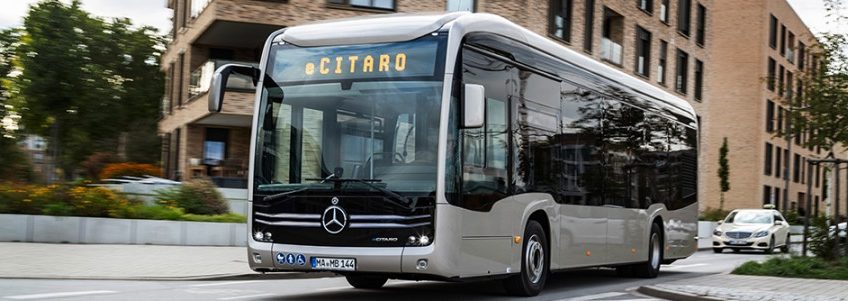Already in series production in Mannheim since 2018, the fully-electric Mercedes-Benz eCitaro city bus is continually being further developed for use in regular line service. Daimler Buses is thereby emphasising the intelligent combination of batteries and fuel cells.
Following the market introduction of battery-electric single and articulated buses as well as the expansion of the portfolio to a solid-state battery from 2020, the range is expected to further increase through a battery for producing electricity by means of on-board hydrogen from 2022.
The development of this technology will be funded under the National Innovation Programme for Hydrogen and Fuel Cell Technology with a total of 3.3 million euros by the Federal Ministry of Transport and Digital Infrastructure. The funding guideline is coordinated by NOW GmbH and implemented by Projektträger Jülich (PtJ). The programme will support the first products required for market introduction in various application areas.
The eCitaro with a fuel cell-provided range extender will be charged with electricity and fuelled with hydrogen (H2). Batteries and fuel cells complement each other excellently for urban bus operation. By combining both technologies, almost 100 per cent of all city bus range requirements can be covered. Through purely electrical operation without CO2 emissions, the vehicle makes a positive contribution to achieving the climate goals for cities.


